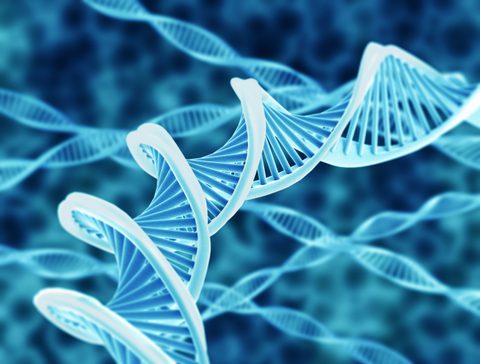

The Role of Nuclease 46L in Degrading Nucleic Acids
DNA is fundamental in many modern biotechnology processes. However its presence can be undesirable in certain applications.
Nucleic Acids
Deoxyribonucleic acid (DNA) and ribonucleic acid (RNA) are the two main classes of nucleic acids. DNA and RNA are macromolecules essential for any living form and they contain the genetic information that drive the synthesis of proteins and are responsible for the function of an organism/microorganism, to develop and produce different industrial products, such as food ingredients, diagnostic testing, vaccine production or synthetic pharmaceuticals. Nucleic acids are therefore at the heart of biotechnology applications and processes.

Nucleic acids are fundamental in many industrial biotechnology processes. Fermentation as a technology has been utilised across industries for centuries. More recently precision fermentation has been adopted as an economical technology for the production of highly specific functional proteins and ingredients at vast commercial volumes using microbial hosts as cell factories. In microbial precision fermentation, DNA exists both as the native expression host microorganism DNA, and the recombinant DNA included for the expression of the protein of interest.
Cell lysis is the disruption to the cells which break down the cell membranes and this can occur at the final stages of a fermentation process. Cell lysis during fermentation can present many challenges including adversely impacting primary recovery. The disruption of the cells causes the release of the nucleic acids present in the host cell microorganism. The presence of nucleic acids in the fermentation broth increases the viscosity which can negatively affect downstream processing and, as a consequence, the overall yields and protein recovery.
In addition to the reduced performance of the operational process and product loss, the presence of nucleic acids can contribute impurities in the final product. Removal of any contaminating residual DNA can reduce these impurities and result in a higher quality end product.
The Role of Nuclease in Degrading Nucleic Acids
Nucleases are a class of hydrolase enzymes (EC 3.1) that degrade nucleic acids. Nucleases specifically target the phosphodiester bonds between the nucleotides in the nucleic acids, resulting in the break down of nucleic acid structure.
For further information on Biocatalysts solutions for the degradation of nucleic acids please read our product datasheet on Nuclease 46L, and our recent technical summary demonstrating the benefits of nucleic acid degradation using Nuclease 46L.